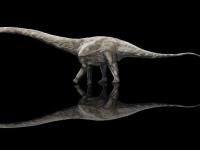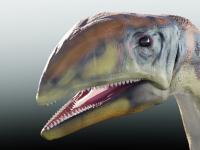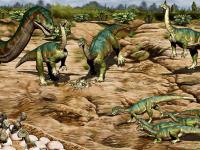Gobiraptor minutus: New Species of Oviraptorid Dinosaur Unearthed

A new species of oviraptorosaur has been unearthed in the Gobi Desert of Mongolia.
Named Gobiraptor minutus, the new dinosaur is thought to have lived between 80 and 70 million years ago (Cretaceous period).
The ancient creature was a member of Oviraptorosauria (oviraptorosaurs), a diverse group of feathered, bird-like dinosaurs from the Cretaceous of Asia and North America.
Its incomplete skeleton, including both cranial and postcranial elements, was discovered in the Nemegt Formation of Altan Uul III, Ömnögovi Province, Mongolia.
The specimen was analyzed by a team of paleontologists from Seoul National University, the University of Cape Town, China’s Institute of Geology and Mongolia’s Institute of Paleontology and Geology.
“Gobiraptor minutus can be distinguished from other oviraptorosaurs in having unusual thickened jaws,” said Seoul National University’s Dr. Yuong-Nam Lee and colleagues.
“This unique morphology suggests that Gobiraptor minutus used a crushing feeding strategy, supporting previous hypotheses that oviraptorosaurs probably fed on hard food items such as eggs, seeds or hard-shell mollusks.”
Histological analyses of Gobiraptor minutus’ femur revealed that the specimen likely belonged to a very young individual.
“The finding of a new oviraptorosaur species in the Nemegt Formation, which consists mostly of river and lake deposits, confirms that these dinosaurs were extremely well adapted to wet environments,” the researchers said.
“Different dietary strategies may explain the wide taxonomic diversity and evolutionary success of this group in the region.”
The discovery was described in the journal PLoS ONE.
_____
S. Lee et al. 2019. A new baby oviraptorid dinosaur (Dinosauria: Theropoda) from the Upper Cretaceous Nemegt Formation of Mongolia. PLoS ONE 14 (2): e0210867; doi: 10.1371/journal.pone.0210867
Source: www.sci-news.com








